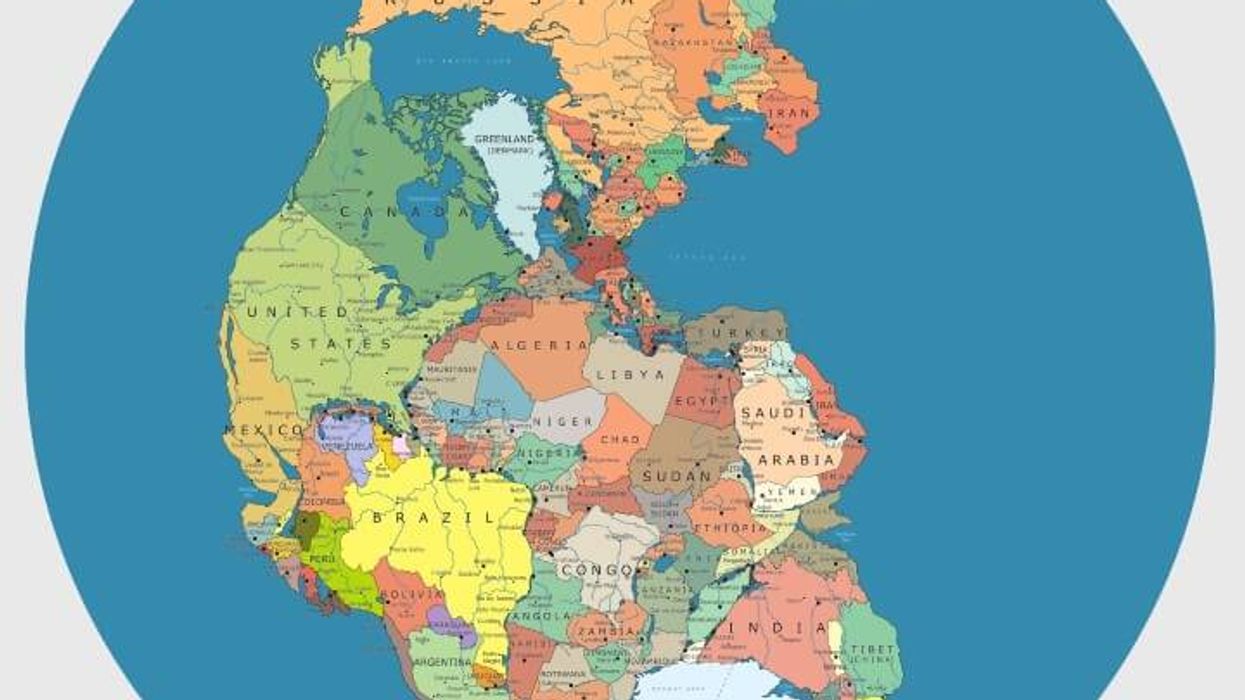Catherine Shuttleworth
Nov 15, 2023

A newly formed supercontinent will be inhospitable for humans
Brilliant Maps
Around 299 million years ago, Pangea existed as super continent before breaking apart 100 million years ago. Now, the continents are due to reconnect in another 200-300 million years. And it's going to mean mass extinction for mammals.
A new study published in Nature Geoscience suggests that as this new supercontinent forms, a hotter Sun, an absence of ocean coastline, and increased volcanic carbon dioxide emissions means that temperatures will skyrocket.
Alexander Farnsworth, a paleoclimatologist at the University of Bristol and one of the authors behind the study, began wondering if it was possible to predict climate conditions hundreds of millions of years from now on a supercontinent.
"When you see a supercontinent forming, it predisposes the environment or the climate to become more fragile for species, more towards these tipping points that can push big extinction events to occur," he said.
Computer modelling efforts such as PALEOMAP can predict how the continents might converge. In order to form Pangea Ultima, Africa would rotate into the coast of North America, and Eurasia would rotate clockwise and converge.
However, one thing is for certain. Pangea Ultima will be almost entirely uninhabitable for mammals.
Most of the landmass will be far from an ocean, and the supercontinent's interior will be around 50°C and 65°C during an average summer - too hot for most plants. Whilst some habitable terrain may exist, competition between surviving species will be fierce.
"When it's too humid, it's too difficult for humans to swear," Farnsworth said. "If we can't swear, we can't remove that internal body heat, and we keep getting hotter and hotter, cooking our own organs, essentially."
Researchers also noted that in 250 million years, the Sun will admit 2.5 per cent more energy because an increase in fusion reactions - solidifying the claim that it will be impossible for mammals to live in such a climate.
Sign up to our free Indy100 weekly newsletter
Have your say in our news democracy. Click the upvote icon at the top of the page to help raise this article through the indy100 rankings.
How to join the indy100's free WhatsApp channel
Top 100
The Conversation (0)













